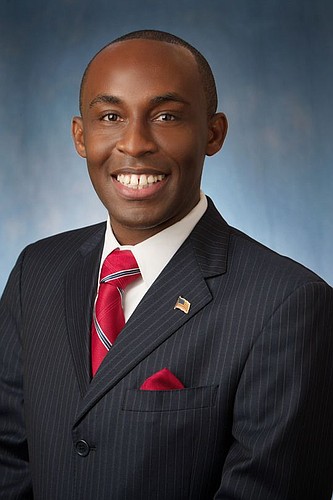
Two weeks ago, City Council approved a human rights ordinance that makes it against the law to discriminate against LGBT people in employment, housing and public accommodations.
The six weeks of discussion about the issue before the vote has led council member Garrett Dennis to tackle another form of employment discrimination.
He’s sponsoring a bill (2017-35) requiring companies that get a city contract worth $200,000 or more to cooperate with the city to secure employment for ex-offenders that were convicted, served their sentence and are in a re-entry program.
The bill describes rehabilitation of ex-offenders as “an essential component in a community fight against criminal activity.”
It goes on to state that fair-paying jobs help restore the economic stability of ex-offenders and reduces recidivism.
“In light of the HRO, this is tearing down the vestiges of discrimination,” Dennis said. “We need to make sure all of our citizens have opportunities.”
The Jacksonville Sheriff’s Office operates a re-entry center that works closely with private nonprofits that have established programs to help people get back into society after they are released from prison.
The organizations provide services such as counseling, case management, job placement and in some cases, transitional housing.
The ordinance would amend the procurement regulations to require companies with the contracts to maintain communication with ex-offender job placement agencies, provide them with job descriptions when they need more workers and report their results in hiring ex-offenders to the city.
Kevin Gay, president of Operation New Hope, said close to 2,000 men and women return to Jacksonville each year after they are released from prison — about 1,800 from state institutions and another 100 from federal facilities.
Operation New Hope’s Ready4Work program enrolls about 600 ex-offenders each year.
“You can’t just write off somebody who is an ex-offender,” Gay said. “A person needs a job so they can support themselves. That keeps them from going back to crime.”
The city has been requiring businesses with local government contracts for services to at least try to hire ex-offenders since 2008, Gay said, but the reporting procedure isn’t as effective as it could be in terms of making sure companies are complying with the requirement or in terms of analyzing the effectiveness of the re-entry employment programs.
The proposed amendment would require city contractors to provide job descriptions and employment opportunities to ex-offender program providers.
It also would require the city’s chief of procurement to provide to the council and the mayor an annual report detailing the number of ex-offenders hired through the re-entry programs.
Mary Tappouni is president of Breaking Ground Contracting Co. and a member of the Associated Builders & Contractors Inc. Florida First Coast chapter’s Government Affairs Committee.
Speaking for the organization, she said she’s concerned about how complicated the reporting requirement might be if the ordinance is enacted.
“I think hiring ex-offenders is being done already and I support that,” Tappouni said, “But we don’t want additional burdens for contractors.”
Stephen McCoy, executive director of Prisoners of Christ, an ex-offender service organization, said when he first heard about the new ordinance he too was concerned about the possible impact on contractors.
“I was a bit skeptical,” he said. “I thought the city wanted to hold companies over the barrel.”
McCoy has since learned more about the proposed changes.
“It’s really about improving communication between employers and organizations that help ex-offenders,” he said. “I’m glad there’s some movement trying to open the dialogue.”
Gay said the system in place is working, but improvements always can be made.
“I think we’ve done a pretty good job connecting folks with jobs,” he said. “But this bill makes participation more measurable.”
The ordinance was re-referred to the Finance Committee two weeks ago and will be back on the agenda for discussion March 8.
(904) 356-2466